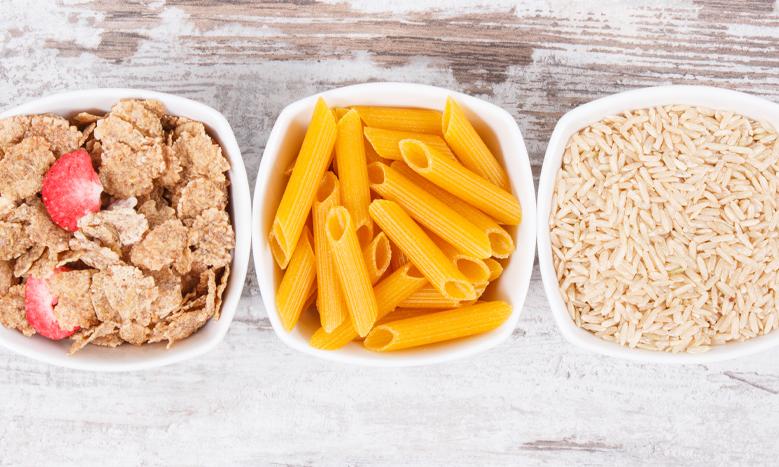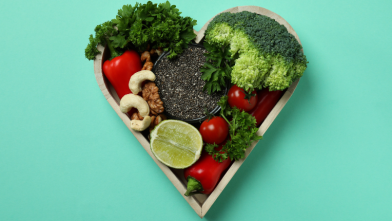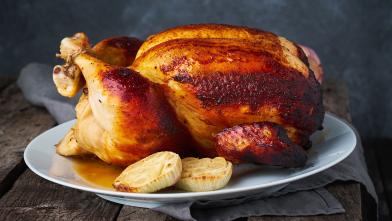Those numbers are helpful day-to-day guidelines, but the question remains: Are all carbs created equal? We know that you could weigh out the carbs from potato chips to equal those from an apple, but we all know that potato chips and apples are not on the same spectrum when it comes to health.
Types of Carbs
We can break down carbs a couple of ways. First, there are simple carbs, complex carbs, and fiber.
Simple carbs , or sugars, are found naturally in foods like fruits, milk, and honey. Simple carbs can also be added sugars, and they can be found in many sweets including jellies, jams, and candies. They’re called simple because the body quickly breaks these down into glucose.
Complex carbs, or starches, are breads, cereals, grains, beans and legumes, and starchy vegetables like potatoes, peas, or corn. They’re called complex because of their complex chemical structure, which has the benefit of taking longer to break down into glucose and enter the bloodstream.
Finally, there’s fiber. It’s found in fruits, vegetables, whole grains, and beans and legumes. Our bodies don’t need to break down fiber so it’s a carbohydrate that doesn’t raise blood glucose (blood sugar) levels the way other types of carbohydrates do.
And it’s why it’s better to select whole grain and high fiber carbohydrates. Part of the carb isn’t going to impact your blood glucose level.
Whole vs. Refined Carbs
Another way to break down carbs is whole versus refined. Whole grains contain the entire grain seed. They have fiber and they’re naturally rich in vitamins and minerals since they’re unprocessed.
For instance, barley generally is a good health choice. But hulled barley, which has had only the indigestible outer husk removed, is more nutritious than pearled (or pearl) barley, which has had its outer husk and bran layer removed. Wheat berries are whole grains, as are brown rice, buckwheat, oats, and popcorn. Refined grains, such as white rice, have been processed and, in the processing, stripped of fiber and essential nutrients. Once stripped, they’re essentially just starch, as are the products made with them, like white bread and pasta, and can lead to spikes in glucose levels.
The Takeaway
Reduce the amount of processed foods you have in your diet for better diabetes management and overall health.








